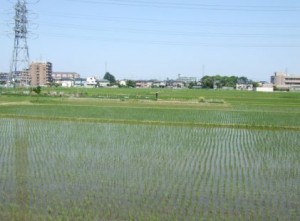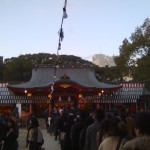I want to tell you about ‘trendy Japanese’. That doesn’t mean fashions or music! I’m talking about language.
We Japanese love making up new words or phrases that are trendy for a while, but quickly go out of fashion. They’re usually quite funny too.
Here are some to start with.
草食系男子
Sōshoku-kei danshi – men who are not aggressive towards career, love or sex. Tend to be modern, neat and posh guys
肉食系男子
Nikushoku-kei danshi – who are opposite to "Sōshoku-kei danshi"; some people may say it's a traditional Japanese men..(!?)
Actually, sōshoku-kei danshi literally means “herbivorous male”! And yes, nikushoku-kei danshi means “carnivorous male”. But it’s nothing to do with their eating habits. It’s more their attitude to life.
“Herbivorous men” are more attractive to girls in Japan today. It’s because they’re less demanding; the modern Japanese woman wants to be free to live her life as she pleases.
And now, there’s a new word for these women too:
肉食女子
Nikushoku joshi – carnivorous females! Run for cover, guys!
Nowadays, Japanese women are much more proactive in their love lives as well as their careers. They seem to be inspired by media images like the four women in “Sex and the City”.
And there’s another type of “carnivorous female”:
ホルモン女子
Horumon joshi – “yakiniku girl” (horumon (=hormone/ organ meat) is another word for yakiniku)

Here are related articles in Japanese.
http://www.j-cast.com/2009/01/02032952.html
http://opi-rina.chunichi.co.jp/topic/20100519-1.html
Seems like it’s lonely being a meat-eater in Japan!
Ah, Yakiniku tabetai! (I wanna eat Yakiniku!)
More trendy words coming soon.
Jaa ne!
–Kazue














